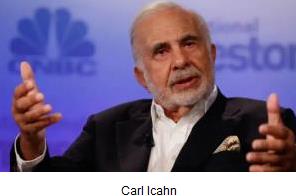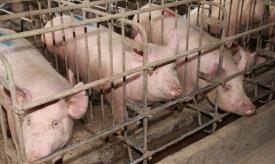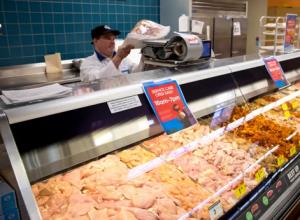On Wednesday, March 30th, the Kroger Company announced that activist investor, Carl Icahn, has submitted a petition nominating two candidates to the Board to be elected at the 2022 annual meeting of shareholders to take place on a date to be announced.
 At issue is the demand by Icahn that Kroger Company move more aggressively to reject all pork derived from sows held in gestation crates. At the present time, approximately 25 percent of sows in the U.S. are group-housed in accordance with Proposition #12 and similar legislation in Massachusetts, Florida and Arizona. The newfound concern for welfare on the part of Icahn of livestock apparently stems from a family member affiliated to the HSUS.
At issue is the demand by Icahn that Kroger Company move more aggressively to reject all pork derived from sows held in gestation crates. At the present time, approximately 25 percent of sows in the U.S. are group-housed in accordance with Proposition #12 and similar legislation in Massachusetts, Florida and Arizona. The newfound concern for welfare on the part of Icahn of livestock apparently stems from a family member affiliated to the HSUS.
In a prepared statement, Kroger noted that it, “works closely with our key suppliers to understand animal welfare topics and make progress together towards commitments”. The company also maintains that it solicits feedback from internal and third-party animal welfare experts, advocacy groups and customers.
Kroger cannot claim to be concerned over livestock welfare if it countenances gestational crates in pork production. The system is regarded as cruel, resulting in almost lifelong confinement of sentient animals to compartments approximately six by three foot that effectively restricts normal activities.
 The National Pork Producers Council and the American Farm Bureau Federation have petitioned SCOTUS to consider the constitutionality of Proposition #12 and the case will be heard during the coming term.
The National Pork Producers Council and the American Farm Bureau Federation have petitioned SCOTUS to consider the constitutionality of Proposition #12 and the case will be heard during the coming term.
In the interim, a large number of retailers and restaurant chains have indicated that they intend complying with accepted welfare standards. They have been moving progressively in cooperation with suppliers towards sourcing pork derived from sows held under group housing with an allowance of 24 square feet.
The Kroger Company is concerned over shareholder, customer and consumer perception of corporate SGE and goes to great length to publicize commitments to sustainability, welfare and environmental issues through a Public Responsibilities Committee. If members of this Committee and the management of the Kroger Company cannot recognize the inhumanity of confining sows to gestation crates, they need to spend a few days on farms observing sow housing in both crates and group pens.
Following adoption of California Proposition #2 in 2008, the egg industry moved progressively to replace conventional cages with alternative systems including aviaries and barn housing. As of February 2022, 111 million laying hens were maintained in either aviaries or barns out of approximately 310 million hens in production. Progress is indicated by the fact that during the fourth quarter of 2020, only 79 million, hens were housed in other than conventional cages. Since 2008, Cal-Maine Foods has invested more than $418 million in facilities and equipment to convert  conventional cages on some farms to alternative systems. In compliance with state requirements and responding to consumer and customer demand, Cal-Maine Foods has committed an additional $80 million to expanding cage-free production.
conventional cages on some farms to alternative systems. In compliance with state requirements and responding to consumer and customer demand, Cal-Maine Foods has committed an additional $80 million to expanding cage-free production.
The pork industry must recognize that the welfare train has left the station, irrespective of the outcome of their appeal to SCOTUS. Their route should be to follow the lead of egg producers and convert notwithstanding the cost. The alternative to inaction by 75 percent of the industry may be that they will either run out of packers willing to process their hogs or experience lower prices for pork derived from sows in gestation crates. Currently Congress is considering the PIGS Act that would establish a national standard for housing parent level and growing generations.